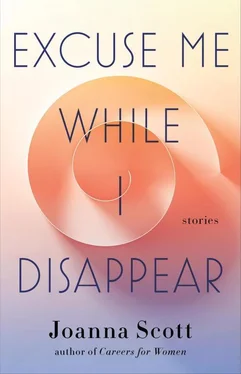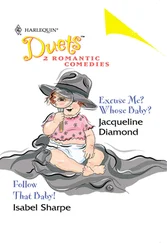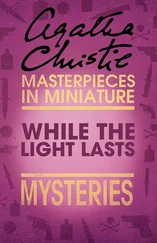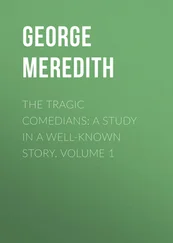“Oh, you young people,” he said. I wasn’t sure whether I heard him chuckle or cough. He peeled off a blue skin of pulp he’d left drying on one of the screens and laid it carefully over a piece of felt. “Haven’t you ever seen handmade paper before?”
“Why is it blue?”
“Because the shop coats were blue, of course. Hand me two pins.”
I followed his pointing finger to a basket and dutifully fished out two clothespins for him. He hung the sheet of paper on one of the few spaces left on the rope nearest the stove.
“Now how may I help you?”
I was masquerading as a scholar with a degree in American literature and a particular interest in Terence Farley’s own efforts as an author. I’d written ahead to request an interview. But something in his tone of voice made me wonder if he’d already seen through my ruse.
“I was just hoping to ask you a few questions,” I said nervously. I fumbled around in my rucksack for my notebook and pen. When I tried to write the date, I discovered that the pen was out of ink. I swore under my breath, glad that Mr. Farley was turned away from me.
“See the table to your right?” he interrupted. “You’ll find a pen in the drawer.”
I watched him watching me as I retrieved the pen. His attention made me uncomfortable, for I could tell he was assessing my trustworthiness, though I shouldn’t have been surprised.
I decided to try a different tactic. “Honestly, I am just crazy about paper. I love paper in all its forms. I love the feel of it. You know that smell when you crack the spine of an old paperback? I love that smell.”
He continued working in busy silence, dipping and stacking screens. Waiting for his reply, I began to worry that I struck him as stupid.
Finally, he cleared his throat. “Did you know that there are scientists in Switzerland who are working to reverse the How Effect?” he asked. “Surely you’ve heard of Gerta How!” he insisted. “She was the scientist at Cambridge who perfected the process of compressing light into matter. Well, there are scientists in Switzerland today who claim to be able to turn matter into light and still preserve its informational code. That’s impressive. It makes teleportation a real possibility. Sometimes it feels that we’re on the verge of knowing everything there is to know.”
He clipped a damp sheet of paper to the rope and picked up another screen, dipped it, and drained the liquid. His manner was efficient rather than rushed as he moved through the different components of the process. All the while, he continued speaking, almost seeming to forget he had an audience. Now and then a breeze passed through the room, rippling the sheets of paper and carrying the pungent richness of the salt marsh.
I’m not sure how long I’d stood and stared before I remembered that I was supposedly there to interview Terence Farley. He might wonder why I wasn’t taking notes. I started scribbling in haste, pretending to keep up with him. I thought at the time that it would not matter what I recorded, and so I ended up with a mishmash of misspellings, nonsense, even hatched lines and doodles in place of words. Luckily, though, I have a good memory. I remember what Terence Farley told me that day, almost word for word.
“You have to understand,” he said in what I thought was the beginning of a sentence but ended emphatically. You have to understand . He drained two more screens before he continued. “Have you ever seen a photo of a terola?” He didn’t wait for me to answer. “Of course you haven’t, because they’ve never been photographed. They are antelope-like creatures that live in the Kunlun Mountains of Tibet. They are said to be the origin of the unicorn myth, for the males sport one long, spindly horn. None exist in captivity. Some scientists believe they are on the verge of extinction, and have fought to protect their habitat. Others insist they never existed at all.” He glanced at me as he secured a damp sheet to the rope. I prepared myself for what I predicted would be one of those familiar lectures about environmental stewardship so often repeated by people of his generation. Instead he asked, “Is it worth trying to preserve a species whose existence has never been officially documented?”
I hesitated, sensing that I was being tested. “Sometimes,” I said slowly, “we become aware of the extent of a loss only after it is gone forever.”
“Provoking us to reconstruct it in memory.” There was a hint of bitterness in his voice. “But what if it never existed in the first place?”
“At least we’ll have a story to tell.”
His expression softened. He surveyed me with new interest.
“I used to believe that I preferred to keep to myself,” he said. “Solitude came as naturally to me as writing did. I thought I wanted to be alone—and then I met Leslie.”
The tip of my pen slipped vertically down the page, but he seemed not to notice.
“I suppose I’ve gotten used to being alone since he died. But I don’t need to tell you about his death. Death is a most uninteresting topic, with an ending that is always the same. Better is the study of origins. That’s why you’re here, isn’t it? To find out how I got started? All right then, I’ll tell you. I have nothing to hide.
“Back then I thought I was feeding on the nectar of the gods. I bought up whole boxes of paperbacks at yard sales. When I wasn’t at home reading, I was in the town library reading. I just wanted to absorb every meaningful phrase that had ever been fixed in writing, whether poetry or prose. I found I relished that particular kind of concentration demanded when language is configured in such a way as to create exceptional resonance. I used to ask myself after I read a good book, What if I hadn’t read it? What if I didn’t even know it had been written? What if? What if!”
Transferring a sheet from the screen to the velvet, he stumbled a step, and the paper ripped and dropped from his hands. Without hesitation, he scooped up the damp clump and threw it back into the vat.
“I confess that I never had much interest in writing. All I wanted to do was read. But I felt I had an obligation to contribute my own effort to our species’ vast library, so I wrote a book, just one, which, as you know because you say you’ve read it, lacks the resonance that raises the best of intentions to the level of art.”
I thought it my duty to object and was preparing to insist that the book—which I’d only glanced at, to be honest, I hadn’t bothered to read it in its entirety—was truly brilliant, but he held up his hand to silence me. “I am not ashamed to admit it was a failure. Oh, perhaps the book itself wasn’t entirely to blame. Even back then, it was difficult to convince the public to read anything longer than a headline. At the same time, once accounting records could be accessed online, no one wanted to be bothered with unpopular commodities. Novels were considered particularly disgraceful. Do you know that today, every manuscript being considered for publication has to be validated through a mechanical t-test? Those that fail are labeled uninteresting nulls and returned to sender. Could you hand me two clips?”
I obliged and stood aside as he moved to hang the sheet on the rope.
“‘Absolute, unproductive beauty,’” he said with a whistling sigh. “That’s how Proust described an expanse of buttercups. He might as well have been describing literature. The work I care most about has little to offer in terms of utility. And so it has been suppressed through the simplest means, by being ignored. I never saw it coming. We don’t need any ban on books—they disappeared on their own. My own brother, who works in the insurance industry, calls me old-fashioned. At best, he points out, there’s the polluting wattage that goes into recycling. Worse is when a good, sturdy pine in Arkansas has to sacrifice its life for the sake of a few reams of paper.”
Читать дальше












